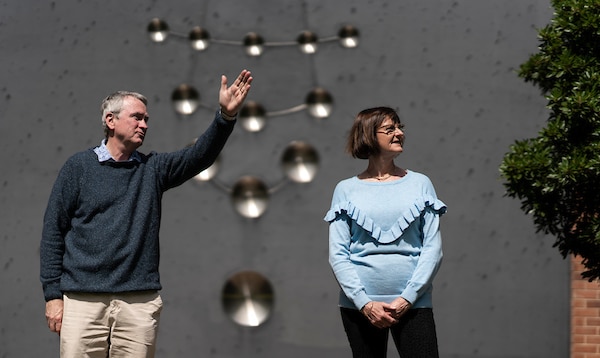Two physicists from the Australian National University (ANU) have been awarded the 2020 Prime Minister’s Prize for Science for their work in detecting gravitational waves.
Professor Susan Scott and Professor David McClelland from the ANU Research School of Physics were awarded the prize for their groundbreaking work, along with the University of Western Australia’s Emeritus Professor David Blair and Professor Peter Veitch from the University of Adelaide.
Gravitational waves were detected on Earth in 2015, and the ANU says the detection has “ushered in a wave of new discoveries”, such as the mergers of two black holes and the collusion of two neutron stars. The University says the signal came from the collision of two massive black holes 1.3 billion years ago, more than 10,000 million, trillion kilometres from Earth.
ANU Vice-Chancellor Brian Schmidt said the detection of the waves “changed the course of physical science” and has allowed scientists to “unlock many age-old mysteries of the Universe”.
“Big questions are hard to answer. When these scientists embarked on their quest to detect gravitational waves, success was not guaranteed in their lifetimes,” Professor Schmidt said.
Professor Scott is the first woman to receive the PM’s Prize for Science in physics. She is the leader of the General Relativity Theory and Data Analysis Group at ANU, and a Chief Investigator of the ARC Centre of Excellence for Gravitational Wave Discovery (OzGrav).
She said prior to the discovery, many scientists thought gravitational waves did not exist or were too small to be detected.
“We worked tirelessly for a quarter of a century without results, and with no guaranteed prospect of a breakthrough,” she said.
“To finally detect gravitational waves, and now to be recognised for this breakthrough with the Prime Minister’s Prize for Science, is truly remarkable. The enormity of it all is still sinking in.”
Funded by the Australian Research Council (ARC) and led by ANU, Australia is one of the four partners in the Advanced Laser Interferometer Gravitational-wave Observatory (LIGO), with twin detectors in the US that are the most sensitive instruments ever built. The ANU has supplied both equipment and techniques that are used in the Advanced Ligo Detectors.
Professor McClelland is OzGrav’s deputy director and said the detection of gravitational waves has been a global effort involving a thousand scientists.
“The Prime Minister’s Prize for Science is a fitting acknowledgement of the vital role played by Australian researchers in this landmark achievement in physics,” he said.



